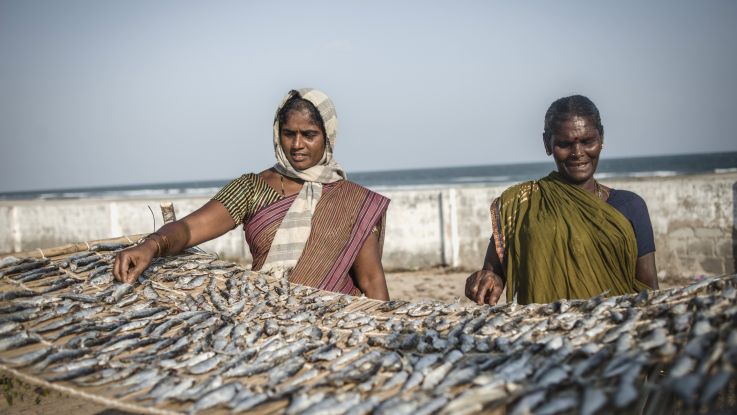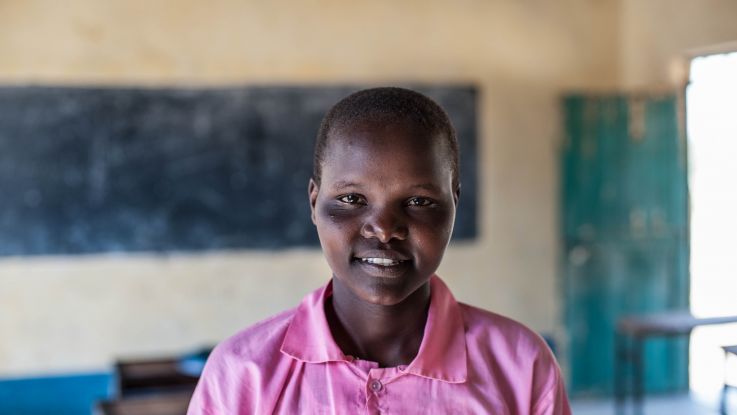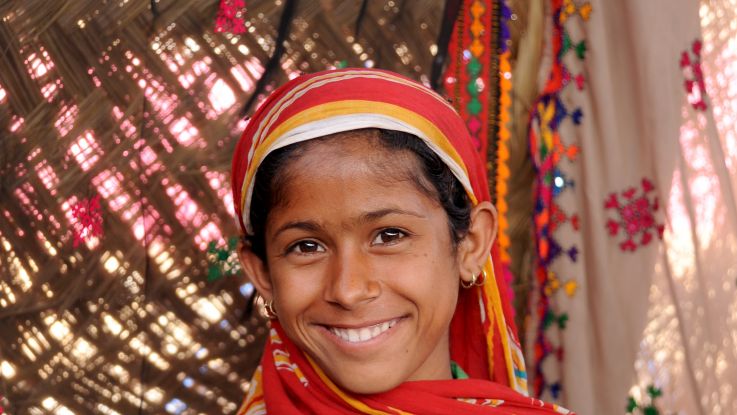Myanmar (Burma)
Why we work in Myanmar
Myanmar is home to 135 ethnic groups. In recent years, the country has experienced rapid change. A liberalisation process, which began in 2010, has seen more than 40 years of military rule give way to democracy.
Myanmar has made significant progress in recent years in reducing poverty. But one quarter of the population still live in poverty, and another third of people are highly vulnerable to falling into poverty in the future.4
Women’s rights and poverty in Myanmar
Opportunities for ordinary women in Myanmar remain limited. Women lack adequate access health services, and there is still gender inequality in education access.
Despite anti-trafficking laws, human trafficking remains a significant issue; in many cases women are trafficked as 'brides'.5
Meanwhile, Myanmar’s poorest people are particularly vulnerable to climate change, and are experiencing more frequent floods, droughts, and cyclones.
In 2015, heavy rains brought intense flooding and landslides to Myanmar, displacing over 1.6 million people.
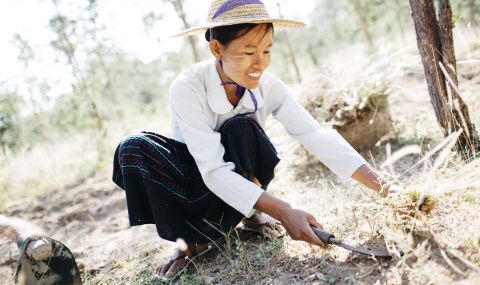
Daw Soe Soe works on the small piece of land she farms with her husband. Their daughter is sponsored by ActionAid.
What we do in Myanmar
ActionAid works to tackle violence against women in Myanmar, including by training community paralegals in basic legal skills, and providing free legal aid to women who have survived violence, so that perpetrators can be held to account.
To change attitudes, we train male community leaders in cultivating zero tolerance policies toward violence among their male networks.
We also train government staff, including the police force, on the implementation of laws and policies designed to prevent violence against women.
Supporting women’s economic empowerment
ActionAid helps women in Myanmar to set up their own small businesses, and develop the skills and capacity they need to escape poverty.
We support farmers to set up self-help business groups, which provide access to seedbanks and loans on a revolving basis so they don’t have to rely on moneylenders with high interest rates.
And we support fishers and farmers with the skills and tools they need to become resilient to earthquakes and disasters as the climate changes.
Disasters in Myanmar
Rohingya refugee crisis
Since violence erupted in Myamar's Rakhine State in August 2017, more than 700,000 Rohingya people have fled Myanmar, crossing the border into Bangladesh where they're living in makeshift camps.
ActionAid is on the ground in Cox’s Bazar, Bangladesh, with a full-scale humanitarian response that has reached at least 60,000 Rohingya refugees from Myanmar with emergency food, clean drinking water and hygiene kits including sanitary products, soap and clean underwear.
In the 2024 monsoon season heavy rainfall impacted refugee camps in this area. Three lives were lost and more than 800 homes were destroyed due to landslides and flooding.
Read more about the Rohingya refugee crisis, and find out how you can help
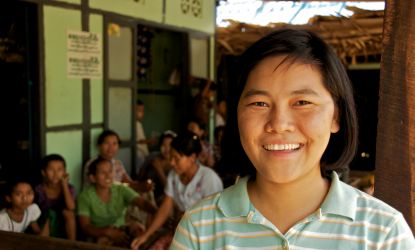
Training ActionAid Fellows to improve village life
At just 19, Khin Soe is one of the youngest ActionAid Fellows in her region of Pakokku, Myanmar.
As a fellow, she took training from ActionAid on subjects like sustainability, gender equality and human rights, and learned skills including public speaking and problem solving.
Khin Soe said: "Once we started learning about development, we began to understand the real reasons why our villages had problems.
"For instance, neighbours had lost crops when the pond ran dry – it was too small and shallow and we had to share it between four villages. And we had no health clinic.
The course opened my eyes - before I just accepted these problems. I’d never tried to analyse the causes and what we could do about them."
Khin Soe’s Story
ActionAid
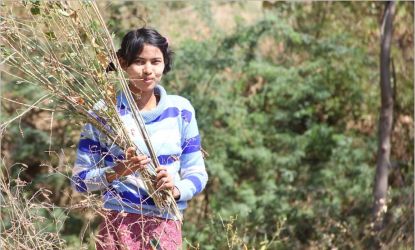
Self-help groups in Myanmar
Naw Thaw Thi Htoo/ActionAid
Empowering young women in self-help groups
In a remote village in Myanmar, ActionAid is supporting young women to become economically independent and to know their rights.
With initial funding from ActionAid, the group has begun a group farming initiative, and pooled resources to develop a clothes business in their small community.
They are also saving the collective profits to give small loans to group members who need it, and support members of the community who are elderly or ill. 28-year-old Khin Myaing said:
I am very happy to be a part of this women self-help group. We are very active to do the community development work, even though we are young."
"I am very happy to do the community development as much as I can."
Footnotes
- 1 https://databankfiles.worldbank.org/public/ddpext_download/poverty/33EF03BB-9722-4AE2-ABC7-AA2972D68AFE/Global_POVEQ_MMR.pdf
- 2 https://reliefweb.int/report/myanmar/myanmar-three-years-devastating-under-reported-war
- 3 https://reliefweb.int/report/myanmar/myanmar-three-years-devastating-under-reported-war
- 4https://www.mm.undp.org/content/myanmar/en/home/presscenter/articles/2019/mlcs-poverty-report.html
- 5https://asiapacific.unwomen.org/en/news-and-events/stories/2019/01/tackling-human-trafficking-in-myanmar
Page updated 16 May 2025

